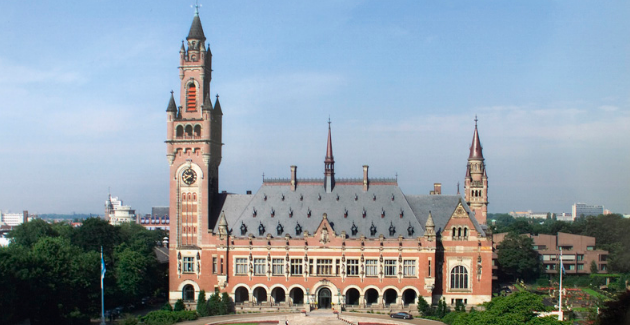The Judgments Project: An Update from The Hague

The Judgments Project at The Hague has made significant progress following the second meeting of the Special Commission and the development of a draft convention. The new convention is intended to simplify and strengthen international law by creating a regime for the recognition and enforcement of foreign judgements.
In an increasingly connected modern world where countless transactions and exchanges of information, wealth and resources take place daily across the borders of multiple countries, the potential for transnational civil and commercial disputes is significant. Consequently, there is a pressing need for effective and robust transnational dispute resolution mechanisms to minimise the costs and risks associated with international litigation and to promote confidence in the global economic system.
To squarely address this issue, a set of uniform rules on the recognition and enforcement of foreign judgments is required. The present system is characterised by a disjointed international framework whereby states apply their own rules in the absence of an international convention. As such, the Hague Conference on Private International Law has identified this area as a top priority of its work programme and has taken substantial steps toward realising the conclusion of an international convention on the recognition and enforcement of foreign judgments. Such a convention would essentially allow judgments rendered by a court in one country to be recognised and enforced in another country.
A long history
The origins of the Judgments Project can be traced back to 1992 when the Hague Conference commenced work on the international jurisdiction of courts and the recognition and enforcement of their judgments abroad in matters concerning civil and commercial litigation. The aims of the project were initially broad but after lenthy negotiations were scaled down in the Convention of 30 June 2005 on Choice of Court Agreements.
In 2011, the project was kick-started once again and has since gained significant traction. Following the progress made by working groups, a meeting of the Special Commission on the Judgements Project was convened in 2016 and a preliminary draft convention was produced.
The Second Special Commission
In February of this year, some 185 delegates from over 50 member states and the European Union met for a second time in The Hague to negotiate the resolution of a draft convention.
The scope of the convention was a particular focus, as delegations debated the nature of jurisdictional filters and the subject matter to be included and excluded from the application of the convention. It was agreed, for example, that the status and legal capacity of natural persons, maintenance obligations, and wills and succession were all matters beyond its scope. There was significant contention concerning intellectual property and privacy matters. Both issues engendered a broad spectrum of views, with some delegations calling for their complete inclusion, while others sought their exclusion.
The bases for recognition and enforcement of judgments were also deliberated, as was the mechanism for their refusal. Again, issues of intellectual property prompted significant debate. The general challenges faced when attempting to balance common law and civil legal traditions were tackled, as were the issues concerning the interrelation between the draft convention and the 2005 Choice of Court Convention. Finally, the Special Commission addressed the general issues of international treaty law and laid down a set of general and final clauses.
The Australian delegation was particularly active during plenary sessions in tabling various proposals and participated in several of the working groups. Professor Richard Garnett led the working group on intellectual property, an especially challenging role, and obtained a degree of compromise between the diverse range of views and opinions of the participating delegations.
The crucial next few years
Although significant progress has been made, the coming months and years are a decisive period in the development of the final convention. It is important that states engage in intersessional work to iron out the remaining contentious issues. A watered-down convention with limited applicability and a broad range of exceptions will not achieve the overarching objectives of improving access to justice and facilitating trade and investment. Major global sociopolitical changes, such as Brexit and a growing discontent with international cooperation and uniformity, may also hamper efforts to conclude a final convention. How such challenges are dealt with will certainly impact on the success of the future convention.
The Special Commission will reconvene for a third time in November 2017, with a view to producing a final convention to be ultimately debated at a Council of Diplomatic Representatives in late 2018 or early 2019.
Why the Judgments Project matters for Australia
By establishing uniform rules on the recognition and enforcement of judgments, the convention will potentially provide transacting parties with a simple, efficient and predictable structure. This will ensure a higher level of certainty in the context of cross-border exchanges and will create a more reliable judicial framework that supports international transactions and investments. Given Australia’s two-way trade in goods and services amounted to nearly $670 billion in 2016 and given its growing trade relations with Asia-Pacific partners, the Judgments Projects complements Australian interests and represents a significant opportunity for increased economic growth and prosperity.
An international regime for recognising and enforcing judgments would moreover simplify the enforcement process and reduce related costs. Indeed, a coherent and unified system for resolving transnational civil and commercial litigation benefits not only Australia but all countries and their citizens.
Andreas Sherborne is the 2017 recipient of the Peter Nygh Hague Conference Internship awarded by the Australian Institute of International Affairs and the Australian Branch of the International Law Association. He attended the February 2017 meeting of the Special Commission as part of his internship.
This article is published under a Creative Commons Licence and may be republished with attribution.